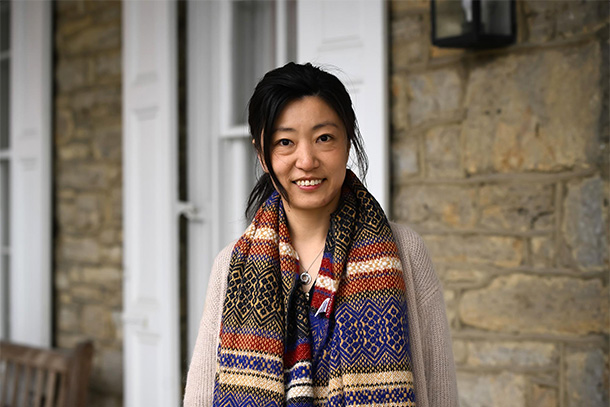
Siu Ling "Pansy" Leung. Credit: Photo provided.
Siu Ling "Pansy" Leung receives 2024 Atherton Award for Excellence in Teaching
March 26, 2024
Editor’s note: A version of this article originally appeared on Penn State News.
UNIVERSITY PARK, Pa. — Siu Ling "Pansy" Leung, associate teaching professor of mechanical engineering in the College of Engineering, is one of six Penn State faculty to receive the 2024 George W. Atherton Award for Excellence in Teaching.
The award, named after Penn State’s seventh president, honors excellence in teaching at the undergraduate level.
Leung inspires and empowers her students through the transformative power of education. She equips them with the vital skills to succeed in their chosen field while showing them the importance of their work.
“As engineers, they have the potential to make significant contributions to a more resilient world,” Leung said. “My teaching philosophy centers on real-world applicability, critical thinking, problem solving and student-centered learning. Additionally, my commitment to inclusivity, diversity and continuous improvement greatly influences my teaching strategy.”
She said her students leave with real-world relevance; they’re able to connect core concepts and theory with practical applications. She changed the curriculum to reflect that by consolidating elective lab courses into one comprehensive mechanical engineering systems laboratory.
There, students apply these core concepts to solve complex challenges in areas such as machine learning, turbine cooling, additive manufacturing, autonomy, robotics and energy.
“Additionally, we equip students with essential practical skills, including data acquisition, analysis, numerical simulation, design of experiments and communication,” Leung said. “This ensures they are not only knowledgeable but also adept problem solvers, prepared for the challenges of modern engineering.”
Leung said she bases her teaching on Bloom’s revised taxonomy: remember, understand, apply, analyze, evaluate and create. The lessons begin on memorization but quickly morph into understanding, applying, analyzing and eventually evaluating and creating their own engineering solutions.
“We aim to provide students with opportunities to create solutions,” Leung said. “Students will integrate technologies or machine parts to create and control a small robot. One example is combining their knowledge in robotic controls and kinematics, deep learning, path planning and image processing to solve the challenge of controlling an autonomous vehicle to follow a planned route and traffic instructions.”
The goal, she said, is to create engineers who are critical thinkers and problem-solvers.
One way Leung accomplishes that is through student-centered learning. She takes on the role of both facilitator and instructor, relishing the sight of students actively engaged in their own learning. Students who are active in the process, she said, have the tools to become successful engineers.
That’s why her lessons are about exploration and analysis, rather than solving for immediate solutions. One example she cited is a challenge related to preheating lithium-ion batteries in the context of teaching heat transfer. Students research why battery performance is reduced and apply their knowledge to ways that performance can be sustained.
“This fosters lifelong learning and equips students with confidence and a proactive mindset for their academic and professional journeys,” Leung said.
An example is presenting a challenge related to preheating the battery. This encourages independent research into why battery performance is reduced in cold weather and how we can sustain their performance using knowledge of heat conduction and convection.
She’s also dedicated to diversity and inclusion, recently spearheading the creation of vital teaching resources for core courses. The goal of integrating diversity equity and inclusion into engineering courses, she said, is to heighten student awareness and empathy for global issues like water scarcity, health care and urbanization.
“I am dedicated to creating a learning environment that fosters curiosity, innovation and a passion for excellence,” Leung said. “My approach enables a dynamic and inclusive learning environment that empowers students to become proficient and adaptable engineers.”
Students said Leung tailors her courses to helping them succeed and has a genuine knowledge for getting to know her students.
“There is no challenge that Dr. Leung will allow her students to face alone,” a former student said. “While she provides them with the tools to have full autonomy, she provides support from afar that keeps driving students forward. The excitement she brings into a classroom or lab encourages fascination in the subject matter among her students. This engagement provides a platform for open communication and problem-solving between her and her students.”



